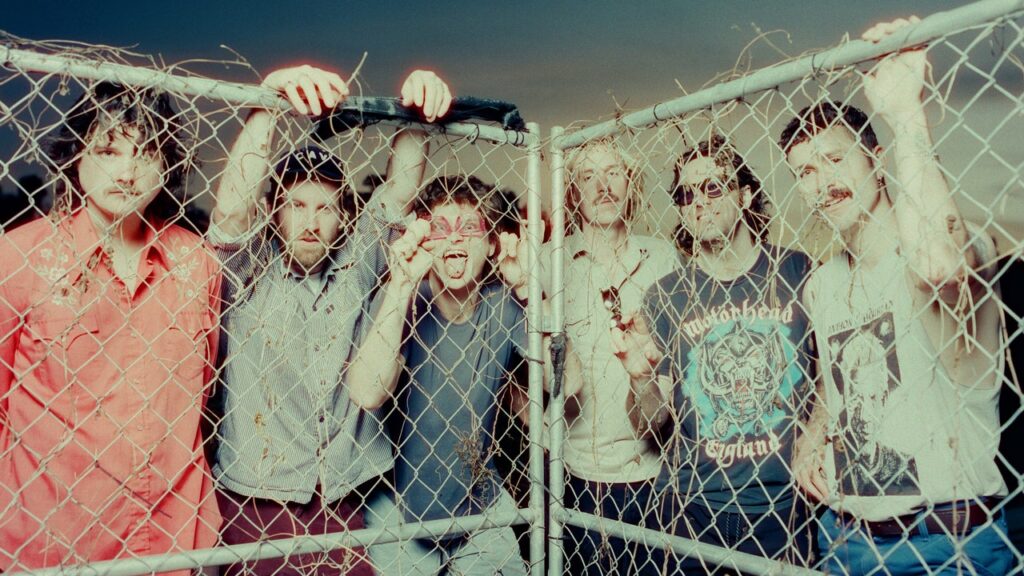[ad_1]
They had realized, after all, that fans were now following them from show to show, especially in the States, so they should be taking more risks—changing the sets, changing the songs, changing the sounds themselves. They could only prepare so much to be that free. “Each night is so involved now, so that it could be the best show, or, just, shit,” says Walker, winking. “That’s exhausting, too, but it’s energizing.”
“When you spend all that time rehearsing, you lose your ear, your connection. You get really good at the one thing you’re doing and stop listening to what everyone else is doing,” Mackenzie says. “We’ve gotten more at peace saying, ‘I’m going to make a bunch of mistakes, and that’s fine.’ Those things that you couldn’t write on a score are going to be more fulfilling, more magical, more interesting—at least to us.”
Early this spring, four months before their American tour began, King Gizz realized they had a problem.
They had experimented with streaming their shows for years, an almost-de rigueur practice in the world of American jam bands into which they had unintentionally wandered. But knowing that music mixed for an amphitheater is different than music mixed for, say, laptop speakers, Mackenzie wanted it to sound good. He laboriously remixed every show when it was over, letting a third-party company sync it with their video only when he was satisfied. They weren’t, then, really streams at all, especially livestreams; they were concert recordings, released weeks after the gig was done.
The bigger issue, though, was money. That is, because the band outsourced the job, their Weirdo Swarm needed to pay to watch. “We didn’t really feel like it was on brand with us to charge. It was Stu’s vision to make it free,” says Cable, their booking agent since she first brought them to the States in 2014 and worldwide manager since Moore left the band in 2020. “We wanted to do it for free and have the footage feel right, because that becomes archival footage.”
Few bands have embraced free culture more than King Gizz. Like the Grateful Dead, Phish, and a legion of associated heads, they allow tapers to capture and share their shows. But in 2017, they slowly began making that redundant with Polygondwanaland, their fourth album of that year but the first they’d issued with an unlikely ultimatum—make your own copies and sell them yourselves.
[ad_2]
Source link

